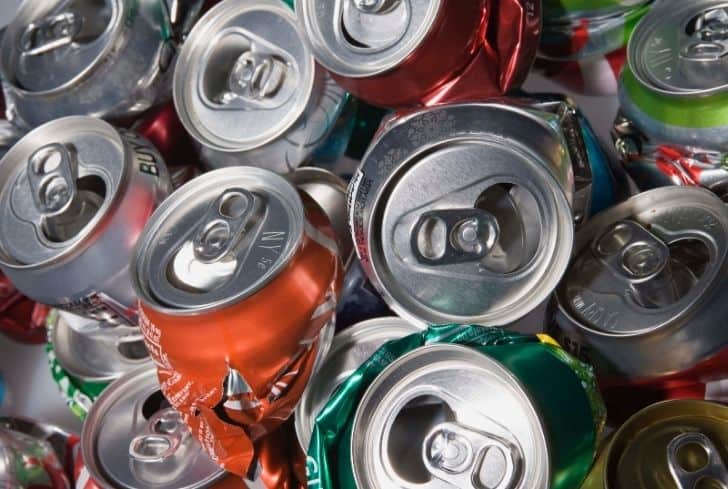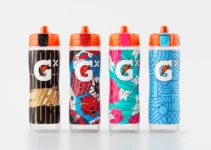From spacecraft components to window frames and plates, aluminum has proven to be a utility sweetheart from big industries to the domestic environment. Its appealing appearance makes it useful for design, it is a better alternative to other metals when considering weight as well as strength, it withstands corrosion as well and thus is taken into consideration for storage of food with low shelf life.
Usually referred to as tins, aluminum cans constitute the largest single use of aluminum globally, more than car design, or spacecraft, building, and other industrial use. Due to its widespread domestic usage, there are huge concerns about its impact on the environment. There is also continued research on how its manufacture as well as use can be more environmentally friendly. According to estimates by Aluminum Association, about $700 million worth of cans end up in landfills in the US.
With such staggering numbers, it is natural to feel alarmed at how your daily use of these precious cans is affecting your environment. Well, worry no more, in this post, we have settled all the questions that you may have. We will see if you can recycle aluminum cans, sell them for cash, and if they are biodegradable? All you have to do is sit back and enjoy reading this post.
Can You Recycle Aluminum Cans?
The process of making aluminum cans requires a lot of energy and resources. Bauxite ore is mined from the earth, processed into a white powdery substance, alumina, and then smelted over 700°c to become aluminum. It is then molded into tins for domestic use.
However, even with its huge costs on the environment, aluminum can be recycled. Fortunately, aluminum does not degrade during the process of recycling and can be recycled over and over while still maintaining durability.
When you properly dispose of aluminum cans you save the world from losing about 95 percent of the energy that will be needed to make aluminum from the scratch: which includes mining Bauxite, converting to alumina and then to cans.
It should be noted that most aluminum cans have alloyed top, which is usually a mixture of aluminum and magnesium, so as to increase its strength and prevent damage while packaging or transporting before intended use.
When the can is melted for recycling, the mixture becomes less suitable for making the top of the can which requires extra strength. In that case annealing: a heat treatment that alters the chemical properties of the mixture is applied to make it suitable for the intended use.
In all, yes, aluminum cans are 100 percent recyclable. They are crushed, compacted, baled, and then melted to be molded into new products.
Can You Recycle Aluminum for Cash?
As earlier said, when you put up cans for recycling, you save the world 95% of the energy needed to make aluminum from scratch. You also save more millions of dollars from joining the 800 million pile of cans in landfills all around the US, increase the recycling rate, and – here is the huge deal – also put some cash in your pocket.
With the consumerist culture in America, there is a huge potential for you to start a small stream of income for yourself by collecting cans. With its widespread domestic uses, you will find out that personally, you use enough cans year-round to make some extra dollars, now imagine the opportunities with family and friends, as well as the workplace.
Fortunately, aluminum cans do not need any special process to be collected for sale, all you need do is get a proper recycle bin, tell anyone who needs to hear you to collect aluminum cans, crush them flat after collecting to easily transportable pieces.
You could use your hands after consuming the contents of the can. An aluminum can crusher, or lightweight hammer is preferable if you’re dealing with bulk to prevent injuries), and then submit. Easy, isn’t it?
It will be very economically beneficial to extend your collection from home to office space, parks, friends, and small businesses like café’s and bars, providing them opportunities to spend less on waste disposal. You help reduce their waste clutters, save the environment trash, and make some cool cash on the side.
On average, aluminum cans cost about 40 cents per pound in the US (varies with location). In this light, 50 pounds will make about $20.
An average of 30 cans make a pound, this is however not definite as aluminum cans come in varying shapes, sizes and by extension, weight. While 30 cans look like a whole lot to gather, you will be surprised that within a period of a month or less, you can gather a whole lot more than that personally, and from other sources.
If you are looking for places to sell your collection, your best bets will be with bottle deposits, scrap yards, recycling centers and even online.
Buy your canned foods, collect them, crush, sell for recycling, make money and save the planet.
Are Aluminum Cans Biodegradable?
The reason why aluminum is the go-to for food packaging is its strength in the face of corrosive factors. You wonder how soda sits in a can for months without expiring, it is because (apart from preservative treatments), aluminum does not easily corrode, it does not rust. Containers that are not made of aluminum are usually coated with aluminum to prevent corrosion.
While this is a huge advantage for food production, it also means aluminum wastes can stay around for a very long time. In the case of aluminum, this could take hundreds of years (about 500) to break down. For this reason, technically, aluminum cans cannot be regarded as a biodegradable material.
Before you toss away that soda can from your car window, or in a bin not meant for recycling, have a second thought for the environment that has to carry your waste for hundreds of years before it can digest it.
Is Aluminum Bad for The Environment?
Yes, aluminum is bad for the environment. Let’s consider the reasons for this answer.
Aluminum uses bauxite, and bauxite mining is very energy-intensive. The process requires a lot of energy as well as the conversion to aluminum and molding process to make the cans.
Apart from the energy expended, an estimated 11 million tons of green gas emissions were produced in the process of replacing 153 billion bottles and cans that were not recycled in 2010.
In addition, toxins are released into soil and water when bauxite ore is being mined. The process can also disrupt the ecosystem and wildlife as these activities happen far from residential areas and mostly in forests.
As regards disposal, while aluminum is 100% recyclable, its recycling rate in the US is barely 50%, this is because people litter the large quantities of cans they use daily. Life stock and sea life are put at risk because of this improper disposal.
Thus, aluminum cans do have negative impacts on the environment if they are not properly disposed or recycled.
Recycling would mean that only 5 percent of the energy required to produce new cans from the scratch are expended. Thus, green gas emissions are reduced, energy and other resources are saved and there is less waste, litter and toxins in the environment when you recycle your aluminum cans.
7 Creative Ways to Reuse Old Aluminum Cans
We do not often realize the kind of nuisance we are likely to cause when we keep aluminum cans around our homes or offices. The problem is actually not about keeping them, it is about finding the right thing to do with them.
Like we have pointed out above, one of the things you can do is recycle them. But then, there are always some fun things to do with aluminum cans than just recycle them. The good thing about this is that you are not harming the environment in any way; you are only being creative.
We understand this urge to be creative, and that is why we have explained the amazing things you can do with your aluminum cans. Get ready, let’s dive in.
1. Cookie Cutter
With the thinness of aluminum cans, they are very good materials for making DIY cookie cutters. It is usually very difficult to find specific cookie cutter shapes you want, but since aluminum is so thin and malleable you can easily manipulate the material into the shapes and sizes you want without buying anything else (except you want to paint them to the desired colors. Just like that, you can have any shape of the cookie as your imagination pleases.
2. Jewelry and body decoration
Aluminum can have a very shiny and appealing appearance, and as such could make for a very good material to consider while making your DIY jewelry. The flexibility also helps you shape them into whatever designs you want. The can tabs for opening can be paired with fabrics and ribbons to make belts, necklaces, bracelets etc. Get the right tools so that you do not put yourself at risk of cuts while making your jewelry.
3. Candle Holders
Instead of glass candle holders that have a higher probability of breaking, used soda cans are a better alternative for holding your candle. However, remember metal conducts heat more than glass so it might also get hotter than your glass holders.
4. Pencil Holders
You probably spend too much time looking for your pencils as they roll away from your reach after use. How about you pick a soda can, cut off the top, tape the edges to prevent cuts (especially if you have children) and have yourself a pencil holder.
5. Storage
You do not, in fact, should not throw out aluminum cans with removable lids. They could serve as storage for knick-knacks that just seem to always disappear, like needles, earrings, bracelets, cufflinks, etc.
6. Recycle
You may not bat with the DIY team, and that is fine, but you could also put aluminum cans to proper use by helping the world conserve resources and recycle. Get yours, friends, family loads of aluminum cans to the scrap yard and save the planet the stress of proving us more bauxite ore. This will also bring you some extra cash.
7. Herb garden
Looking for a way to plant, soda cans can come in handy, just take off the tops completely, fill them with soil and plant your seeds.
Conclusion
Aluminum cans have proven their worth since the inception of its use in the 1950s, it has served an array of purposes for human life, especially by making storage of food easier. It is, therefore, necessary to ensure that what has been of high utility does not become a weapon of destruction for the environment we live in, and provides us the resources. Asides from recycling, you can reuse aluminum cans by making out new products from them.
References:






